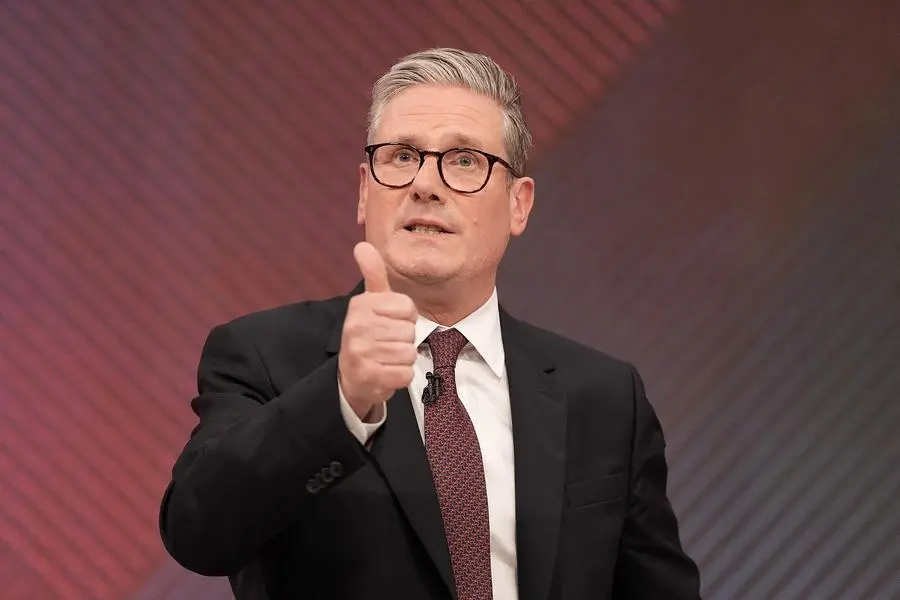PHOTO
Britain's Labour party on Thursday launches its general election manifesto, hoping that a promise to get the economy growing again will catapult it into power after 14 years in opposition.
Labour has been consistently some 20 points ahead of Rishi Sunak's Conservatives for nearly two years, making its leader Keir Starmer a virtual shoe-in as the country's next prime minister if polls are correct.
But Starmer, 61, still has work to do before polling day on July 4 to overcome persistent Tory claims about Labour profligacy with public finances and warnings that it will increase personal taxes.
The manifesto launch comes two days after the Tories promised voters more tax cuts, in a campaign where the affordability of the main parties' spending plans have come under close scrutiny.
In details trailed in advance by the party, Starmer will describe Labour's blueprint for government as a "manifesto for wealth creation" and call it "our number one priority".
"The mandate we seek from Britain at this election is for economic growth," the former human rights lawyer and chief public prosecutor will tell party members in Manchester, northwest England.
"Growth is our core business -- the end and the means of national renewal," he will add, promising sustained economic growth to drive up living standards.
To get there, Labour is promising to restore economic stability after the turbulence of recent years that saw inflation hit 11.1 percent in October 2022 -- its highest in 40 years.
It vowed to introduce tough new spending rules to allow businesses to plan, a cap on corporation tax at 25 percent and an industrial strategy for longer-term investment, particularly in green tech and AI.
- Wriggle room -
Starmer and his likely finance minister Rachel Reeves look set to have little room for manoeuvre, however, with the economy stagnant in April after emerging from recession in the first quarter.
Both Labour and the Tories have ruled out increasing the VAT sales tax, income tax rates and National Insurance, which pays for state healthcare, pensions and unemployment, if they win.
Economists said the incoming government could get some momentum from expected falls in interest rates and inflation by the end of the year.
Many Labour policies -- from continued support for Ukraine and scrapping the Tories' plan to deport failed asylum seekers to Rwanda, to recognising Palestinian sovereignty as part of the peace process -- have been drip-fed over months.
As in 1997, when Tony Blair won a landslide after 18 years of Tory rule, Starmer knows that he needs to reassure a jittery electorate that Labour can provide stability and economic competence.
At the last election in 2019, his predecessor Jeremy Corbyn stood on a radical platform that included proposals for sweeping renationalisation of key industries, and tax hikes for high earners.
Starmer, who took over after Labour was routed by Boris Johnson's Tories and has dragged the party back to the less threatening centre ground, and will vow it is "pro business and pro worker".
Britons have endured an unprecedented period of political upheaval, with five Tory prime ministers since 2010, and three in just four months in 2022.
Much of that was the result of Brexit, the country's tortuous departure from the European Union, but also self-inflicted wounds such as Liz Truss's short-lived tenure, when her unfunded tax cuts spooked the markets and crashed the pound.
One of Starmer's first tasks if he finds himself in Downing Street on July 5 will be to prepare for a crunch NATO summit in Washington the following week, and to host a meeting of European leaders.





















